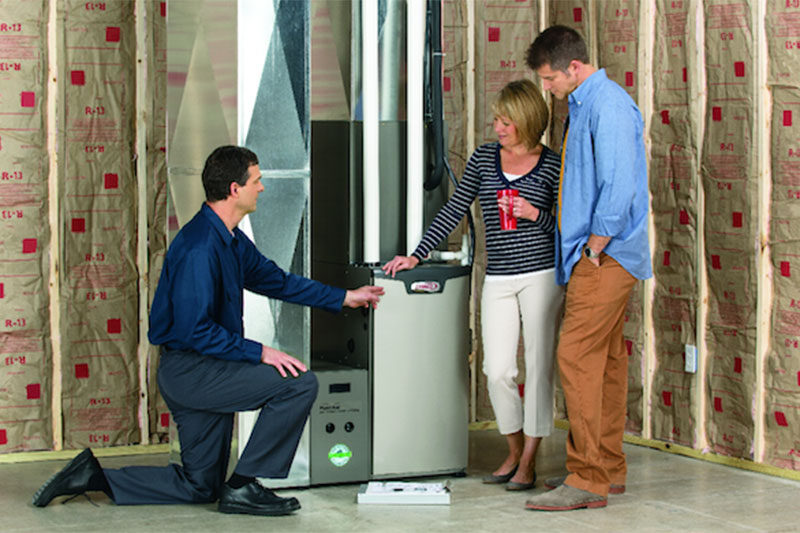
Natural gas furnaces need sufficient space and airflow to run correctly.
Your furnace can overheat if it doesn’t have enough space. It also makes it challenging for our professionals to perform furnace repair.
Regular furnace maintenance is important to keep your equipment operating trouble-free. An annually serviced furnace may heat more efficiently, which could reduce your utility bills.
Related: How Does Furnace Maintenance Impact the Energy Efficiency of Your Home?
Maintenance often helps us discover issues before they begin. This could help lower future repair costs and likely prolong the life of your furnace.
So how much room should your equipment really have?
How Much Space Does My Furnace Need?
If you’re finishing your basement or sealing off your furnace room, you should take a look at manufacturer specifications and Columbia statutes for clearance guidelines.
As a general rule of thumb, your system should be 30 inches away from furnace room walls on all sides. This allows our service technicians to easily work on it.
You also need to check the room has enough airflow and ventilation, especially if you have an outdated furnace with a metal flue.
Related: Furnace Service or Furnace Replacement: What to Consider
This type of furnace pulls combustion air from the nearby space. If there’s insufficient air, unsafe gas fumes and deadly carbon monoxide could flow back into your home.
If your furnace is placed in a small room with a gas water heater, you may need to install more openings. This could involve a fully louvered door or vents in the walls.
You don’t need to think about airflow and ventilation as much if you have a modern, high-efficiency furnace with PVC piping. Your system uses one pipe as an exhaust vent and the other to add air.
Keep Flammable Items A Safe Distance from Your Furnace
Although furnace rooms are often also used for laundry and storage space, you should keep yours free of clutter that could be fire hazards.
This includes:
- Clotheslines
- Cleaning or laundry products
- Gasoline, paint or paint thinner
- Rags and papers
- Wood scraps and sawdust
- Used filters
If you have a cat, put your litter box elsewhere. Cat urine contains ammonia, which could deteriorate your furnace’s heat exchanger. Plus, the furnace could spread the smelly odors around your home.
You should also frequently clean by your furnace to block dust from accumulating.
Related: Is it Time for Furnace Service or Replacement?
Trust the Local Pros for Furnace Service
Whether you have to have furnace replacement or regular maintenance in Columbia, Watts Electric & AC can expertly handle your needs. Our highly trained technicians can repair any HVAC model or brand.
Call us at 601-736-7362 or use our online scheduler to get an appointment today.
